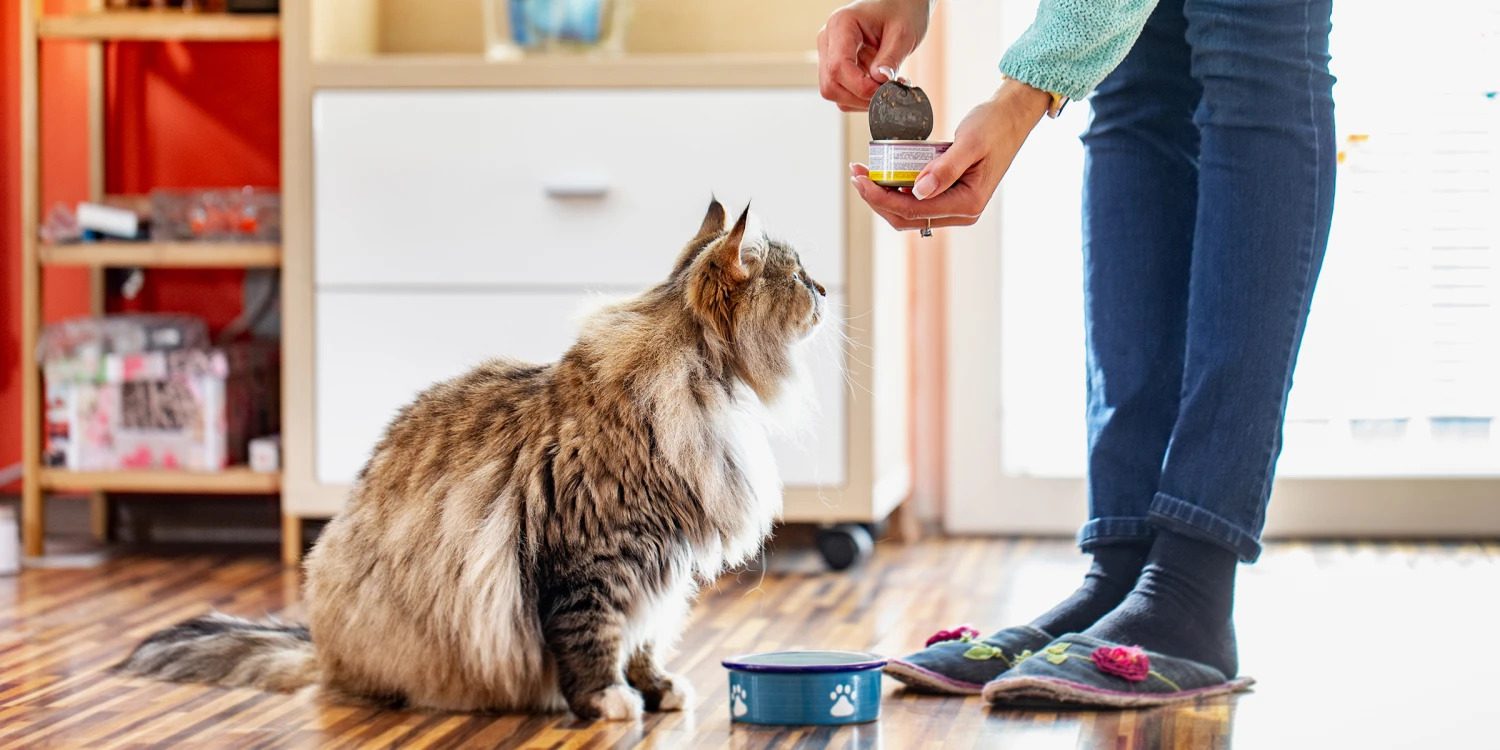Are you a proud cat owner? If so, you know how important it is to take care of your furry friend's health and well-being. One crucial aspect of cat care is choosing the right food for them. But with so many options available, how do you know which one is best? That's where understanding the ingredients in cat food comes into play. By delving into this subject, you can ensure that your beloved feline companion receives the nutrition they need to thrive. Whether you're a seasoned pet parent or new to the world of cats, this guide will equip you with the knowledge to make smart shopping choices when it comes to picking the perfect cat food ingredients. So let's dive in and uncover the secrets behind providing your cat with a balanced and nourishing diet!
Key Takeaways:
- Understanding the importance of reading cat food ingredient labels is crucial for smart shopping.
- Look for high-quality protein sources as the primary ingredient in cat food to ensure a balanced diet.
- Avoid cat foods that contain fillers, by-products, and artificial additives, as they provide little nutritional value.
- Cats have specific dietary needs, so choose cat foods that are formulated for their life stage and health condition.
- Consulting with a veterinarian can help in selecting the right cat food ingredients based on individual dietary requirements and preferences.
What is Smart Shopping and Why is it Important for Choosing Cat Food Ingredients?
Understanding the Concept of Smart Shopping
Smart shopping refers to making informed decisions when purchasing products, including cat food. It involves researching and analyzing the ingredients used in the food to ensure they meet your cat's nutritional needs. By being a smart shopper, you can choose cat food that promotes your pet's overall health and well-being.
The Importance of Smart Shopping for Cat Food Ingredients
Choosing the right cat food ingredients is crucial because it directly affects your furry friend's health. Cats have specific dietary requirements, and providing them with high-quality ingredients ensures they receive proper nutrition. Smart shopping allows you to avoid harmful additives, fillers, or artificial substances that may be detrimental to your cat's health in the long run.
Here are a few reasons why smart shopping for cat food ingredients is important:
1. Health Benefits: Opting for cat food with wholesome ingredients can improve your pet's immune system, digestion, coat quality, and energy levels.
2. Preventing Allergies: Some cats may have allergies or sensitivities to certain ingredients like grains or artificial additives. Being mindful of these potential allergens helps prevent adverse reactions.
3. Weight Management: Selecting cat food with appropriate ingredient ratios can help maintain a healthy weight for your feline friend.
4. Longevity: Providing a balanced diet through smart shopping can contribute to your cat's longevity and overall quality of life.
By taking the time to understand and analyze cat food ingredients, you can make informed choices that prioritize your pet's health and happiness.
Determining Suitable Cat Food Ingredients for Your Pet's Needs
Evaluating Your Cat's Specific Needs
Every cat has unique dietary requirements based on factors such as age, breed, activity level, and any existing health conditions. Understanding your cat's specific needs is crucial for selecting suitable cat food ingredients.
To determine the right ingredients for your pet, consider the following factors:
1. Age: Kittens have different nutritional needs than adult or senior cats.
2. Health Conditions: Cats with certain health issues may require specialized diets or avoid specific ingredients.
3. Activity Level: Active cats may benefit from higher protein content, while less active cats may require fewer calories.
Essential Nutrients in Cat Food Ingredients
When assessing cat food ingredients, it's important to ensure they provide essential nutrients necessary for your cat's well-being. Some key nutrients to look for include:
1. Protein: Cats are obligate carnivores and need high-quality animal-based proteins like chicken or fish for optimal growth and maintenance of muscles.
2. Fats: Healthy fats, such as omega-3 and omega-6 fatty acids, contribute to a healthy coat, skin, and overall immune function.
3. Carbohydrates: While cats don't require carbohydrates in large quantities, a small amount can provide energy. Look for easily digestible carbohydrates like sweet potatoes or peas.
4. Vitamins and Minerals: Essential vitamins (A, E, D) and minerals (calcium, phosphorus) support various bodily functions and promote overall health.
By considering your cat's individual needs and ensuring the presence of essential nutrients in the cat food ingredients you choose, you can provide a balanced diet that supports their overall health and vitality.
Key Factors to Consider for a Healthy Diet in Cat Food Ingredients
The Importance of Protein
Protein is an essential component of a healthy cat diet. Cats are obligate carnivores, which means they require a high amount of animal-based protein in their diet. Look for cat food that lists real meat as the first ingredient, such as chicken or fish. Avoid products that use vague terms like "meat by-products" or "animal digest," as these may contain low-quality protein sources.
Avoiding Fillers and Artificial Additives
Fillers are ingredients that provide little nutritional value and are often used to bulk up cat food at a lower cost. Common fillers include corn, wheat, and soy. These ingredients can be difficult for cats to digest and may lead to allergies or digestive issues. Additionally, artificial additives like colors, flavors, and preservatives should be avoided as they offer no nutritional benefit and may cause health problems.
Tips:
- Choose cat food with high-quality animal-based protein sources listed as the first ingredient.
- Avoid products that contain fillers like corn, wheat, and soy.
- Look for cat food without artificial additives such as colors, flavors, and preservatives.
Natural vs. Artificial Cat Food Ingredients: What's the Difference?
Natural Cat Food Ingredients
Natural cat food ingredients refer to those that are minimally processed and free from artificial additives. These ingredients are sourced from nature and retain their natural nutrients. Natural ingredients can include real meat, fruits, vegetables, and whole grains. They provide a more wholesome option for your cat's diet.
Artificial Cat Food Ingredients
Artificial cat food ingredients are synthetic substances created in laboratories to mimic natural flavors or enhance the appearance of the product. These ingredients often lack the nutritional value found in natural ingredients. Artificial additives can include artificial colors, flavors, and preservatives. They are added to cat food to make it more appealing to humans but may not be beneficial for your cat's health.
Tips:
- Opt for cat food with natural ingredients that are minimally processed.
- Avoid products that contain artificial additives such as artificial colors, flavors, and preservatives.
The Importance of Reading and Understanding Cat Food Ingredient Labels
Decoding the Ingredient List
Reading and understanding cat food ingredient labels is crucial for ensuring your cat's health. The ingredient list on cat food packaging provides valuable information about what goes into the product. Ingredients are listed in descending order by weight, with the heaviest ingredient listed first. This means that the first few ingredients make up the majority of the product.
Identifying Allergens or Sensitivities
By carefully reading ingredient labels, you can identify potential allergens or sensitivities in your cat's diet. If your cat has known allergies or sensitivities, look for specific ingredients to avoid, such as grains or certain types of meat. Being aware of these ingredients will help you select a suitable cat food that won't trigger any adverse reactions.
Tips:
- Pay attention to the order of ingredients on the label.
- Look out for potential allergens or sensitivities based on your cat's specific dietary needs.
Avoiding Harmful Ingredients in Cat Food: What to Watch Out For
Artificial Preservatives
Certain artificial preservatives commonly used in cat food have been linked to health issues in cats. These include BHA (butylated hydroxyanisole), BHT (butylated hydroxytoluene), and ethoxyquin. These preservatives are added to extend the shelf life of cat food but may have negative effects on your cat's health, including allergies and organ damage.
Chemical Additives
Some cat food ingredients may contain chemical additives that are potentially harmful to cats. For example, propylene glycol is sometimes used as a humectant in wet cat food but can cause anemia in felines. It's important to be aware of these additives and choose cat food that avoids them.
Tips:
- Avoid cat food that contains artificial preservatives like BHA, BHT, and ethoxyquin.
- Be cautious of chemical additives such as propylene glycol.
Ensuring Proper Nutrition through Smart Shopping for Your Cat's Food
Understanding Nutritional Requirements
To ensure your cat receives proper nutrition, it's essential to understand their specific dietary needs. Cats require a balanced diet that includes protein, fats, carbohydrates, vitamins, and minerals. Look for cat food that is labeled as "complete and balanced" to ensure it meets these requirements.
Considering Life Stage and Special Needs
Different life stages and special needs require specific nutritional considerations. Kittens, adult cats, and senior cats have different nutritional requirements. Additionally, if your cat has any health conditions or sensitivities, consult with your veterinarian to determine the best diet for them.
Tips:
- Choose cat food labeled as "complete and balanced."
- Consider your cat's life stage and any special needs when selecting their food.
Tips and Guidelines for Making Informed Decisions on Cat Food Ingredients
Consulting with Your Veterinarian
When making decisions about your cat's diet, it's always beneficial to consult with your veterinarian. They can provide personalized recommendations based on your cat's specific needs and health conditions. Your veterinarian can also help you navigate ingredient labels and choose the best cat food for your furry friend.
Researching Brands and Reviews
Take the time to research different cat food brands and read reviews from other cat owners. Look for reputable brands that prioritize high-quality ingredients and have a good track record of producing nutritious cat food. Reading reviews can give you insights into the experiences of other cat owners and help you make an informed decision.
Tips:
- Seek advice from your veterinarian when choosing cat food.
- Research different brands and read reviews to gather information from other cat owners' experiences.
In conclusion, when choosing cat food, it's important to look for high-quality ingredients that meet your cat's nutritional needs. Avoid artificial additives and prioritize real meat sources to ensure your furry friend stays healthy and happy.
How do I choose cat food ingredients?
The most crucial ingredient to search for in cat foods is a designated protein source rather than just "meat." Look for options like chicken, turkey, lamb, salmon, etc. It is also beneficial if the protein source is followed by named organs, such as chicken liver or chicken heart, as these are rich sources of taurine.
How can you tell if cat food is good quality?
If a manufacturer follows the AAFCO recommendations, their cat food packaging will include an AAFCO statement, also known as a nutritional adequacy statement. This statement assures pet owners that the diet is fully balanced and suitable for the specific life stage mentioned.
Do cats need grain or grain free food?
Grain-free diets do not provide any added health benefits for cats unless there are documented food allergies or inflammatory conditions. Traditional dry and canned foods, which contain balanced nutrients, are generally sufficient for promoting a healthy and long life for your cat.
What is the #1 vet recommended cat food?
Due to its numerous advantages for cats that are underweight or unwell, we have selected Hill's Prescription Diet a/d as the top veterinary-recommended food. Alongside Hill's Prescription Diet, we have evaluated four other cat food brands recommended by vets and chosen the best recipes from each.
What to look for when buying dry food for cats?
To ensure the quality of the food, you can check the packaging for the AAFCO nutritional adequacy statement. Good quality food contains high-quality ingredients that offer nutritional benefits such as energy from protein, which is important for growth, nutrient transportation, and oxygen delivery.
Why do cats like fancy feast so much?
Many of the Fancy Feast options are actually high in protein and low in carbohydrates. This assortment of meat-in-gravy flavors is perfect for cats who enjoy variety and would be a great choice for them.

















